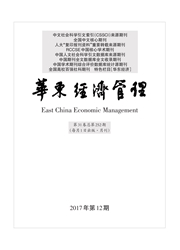

 中文摘要:
中文摘要:
文章将组织公民行为(OCB)的动机区分为理性利己和社会利他,以他人取向不同水平和回报的不同情境为切入点,运用情感事件理论和他人取向理论,结合问卷与实验心理学方法,对基于两种不同动机的OCB产生的机制进行了深入研究。结果表明:当存在回报期望,他人取向低的员工更有可能基于理性利己的动机而产生高水平OCB;当不存在回报或存在回报责任时,他人取向高的个体更有可能基于社会利他的动机产生高水平OCB。
 英文摘要:
英文摘要:
The research explores to classify organizational citizenship behavior (OCB) into rational self-interest motives and social altruism,and take two different levels of individual’s other orientation and three different scenarios of return as the start-ing point. It carries out the study on generating mechanisms of OCB in depth based on two different motives,by applying emo-tional events theory and other orientation theory,and sorting with questionnaires and experimental psychology method. The re-sults show that,when there is expectation of return,individuals with lower other orientation are more likely to produce higher OCB based on rational self-interest,while there is no return or return obligation exists,individuals with higher other orienta-tion are more likely to produce high levels of OCB based on social altruism.
 同期刊论文项目
同期刊论文项目
 同项目期刊论文
同项目期刊论文
 期刊信息
期刊信息
